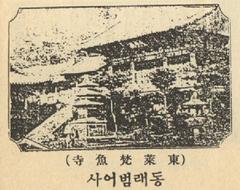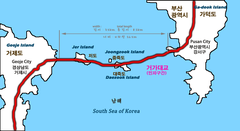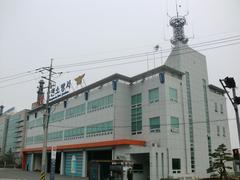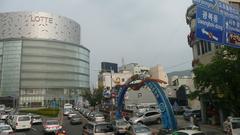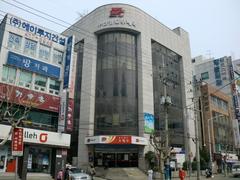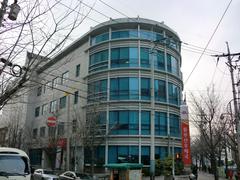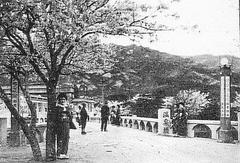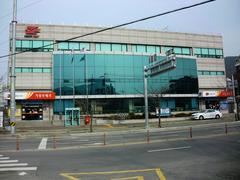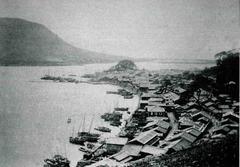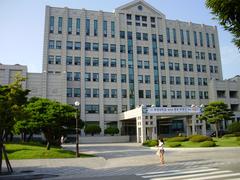
Busan Gijang Police Station: Visiting Hours, Tickets, and Historical Significance
Date: 03/07/2025
Introduction
Busan’s Gijang district, nestled along South Korea’s scenic northeastern coast, is a vibrant blend of historical depth, natural beauty, and community vitality. Among its essential civic institutions is the Busan Gijang Police Station. While it may not be a typical tourist attraction, the station plays a pivotal role in safeguarding both residents and visitors, supporting local events, and providing practical assistance. Understanding its services, accessibility, and historical context can enhance your safety and enrich your experience as you explore Gijang’s treasures.
This detailed guide covers everything you need to know about visiting the Busan Gijang Police Station: operating hours, accessibility, multilingual support, and community engagement. It also highlights the station’s connection to nearby cultural landmarks, offers practical travel tips, and provides insights into Gijang’s unique heritage.
For more resources, visit the Visit Busan website and the Busan Metropolitan Police Agency, or use travel apps like Audiala for real-time updates and guidance.
Table of Contents
- Introduction
- Location and Accessibility
- Visiting Hours and Admission
- Visitor Services and Facilities
- Community Engagement Initiatives
- Nearby Attractions and Historical Sites
- Practical Tips for Tourists
- Frequently Asked Questions (FAQ)
- Conclusion
Discover Gijang: History, Attractions, and Traveler Information
Gijang – Where Culture and Coastline Meet
Gijang, in northern Busan, is a destination where visitors can immerse themselves in a mix of ancient heritage, vibrant markets, and breathtaking coastal scenery. Whether you’re sampling fresh seafood, exploring Buddhist temples, or learning about local law enforcement, Gijang promises a memorable experience.
Historical Background
Ancient Origins
Gijang traces its roots to the Unified Silla period (757 AD), as archaeological evidence reveals a community steeped in agriculture, fishing, and trade. Sites like Jangansa Temple, established in the 7th century by the monk Wonhyo, stand as enduring testaments to this rich Buddhist legacy.
Modern Growth
During the Japanese colonial era, infrastructure improvements such as the Donghae Line railroad and the development of Daejeon Port laid the groundwork for Gijang’s modern transformation. Today, Gijang Station offers seamless connections to Busan and the wider region.
Visitor Information: Hours, Tickets, and Getting Around
Key Attractions & Their Hours
- Jangansa Temple: 6:00 AM–6:00 PM, daily. Free admission.
- Haedong Yonggungsa Temple: 5:00 AM–7:00 PM. Entrance fee: 3,000 KRW.
- Gijang Traditional Market: 7:00 AM–8:00 PM, daily. No entry fee.
Tickets for most attractions are purchased onsite; advance booking is rarely necessary except for special tours or events. For more information, consult local tourism websites or the Gijang Police Station.
Accessibility
Major attractions, including temples and markets, generally provide wheelchair access and facilities for visitors with disabilities. Public transport via the Donghae Line and local buses ensures easy access throughout Gijang.
Busan Gijang Police Station: Role, Services, and Access
Importance for Visitors
The Gijang Police Station is centrally located in Gijang-eup, near Gijang Station and other public facilities (Mapcarta). Its presence ensures public safety, supports local events, and offers vital services for travelers.
Visiting Hours and Entry
- Operating Hours: Monday–Friday, 9:00 AM–6:00 PM. Closed weekends and public holidays.
- Admission: No ticket or fee required; the station is a civic facility, not a tourist site.
Services for Tourists
- Emergency Assistance: Officers provide immediate help in emergencies, with basic English support and access to translation services.
- Lost Property: Lost items can be reported or retrieved at the station, increasing the chances of recovery.
- Safety Guidance: Staff offer advice on local safety, avoiding scams, and navigating transportation.
Visitors are advised to carry identification and, if possible, have their accommodation address written in Korean. Translation apps like Papago or Google Translate are highly recommended (Reddit).
Community Initiatives and Engagement
The Gijang Police Station is deeply involved in local community-building:
- Safety Campaigns: Officers run educational programs in schools and community centers, covering topics like crime prevention and traffic safety.
- Multicultural Support: In partnership with the Busan Global City Foundation, the station provides safety briefings and legal guidance for international residents (Busan Global City Foundation).
- Neighborhood Policing: Initiatives such as neighborhood watch programs, youth cadet engagement, and support for major events like the Busan Sea Festival foster trust and safety (Busan Major Events).
Daeryong Village: A Cultural Highlight Near Gijang Police Station
Overview
Daeryong Village is a traditional fishing community that has evolved into an artistic hub, known for vibrant murals and cultural events. Its transformation from a working village into a creative destination makes it a must-visit location for anyone interested in Busan’s coastal heritage.
- Visiting Hours: Open access year-round, best explored during daylight.
- Admission: Free.
- Getting There: Take Busan Bus 181 or use the Donghae Line to Gijang Station, then continue by bus or taxi.
Attractions Nearby
- Gongsu Fishing Village: Experience local seafood and traditional fishing culture.
- Songjeong Beach: Popular for surfing, about 15 minutes by car.
For more on Daeryong Village, see the Visit Busan website.
Practical Tips for Tourists
- Respect Local Customs: Dress modestly and behave quietly at religious sites and festivals.
- Optimal Visit Times: Spring (anchovy season) and autumn offer pleasant weather and unique events.
- Transport: Use the Donghae Line, local buses, or taxis for convenient travel.
- Communication: Use translation apps or the multilingual hotline at 1577-7716 for assistance (Busan Global City Foundation).
Frequently Asked Questions (FAQ)
Q: What are the police station’s hours?
A: Monday–Friday, 9:00 AM–6:00 PM; closed on weekends and public holidays.
Q: Do I need a ticket to visit the station?
A: No, as it is a public service facility.
Q: Can tourists tour the police station?
A: Tours are not offered, but visitors needing assistance are welcome during business hours.
Q: Is English assistance available?
A: Yes, some staff speak English, and translation services are available.
Q: How do I report lost property?
A: Report in person at the station or call 182.
Q: What are the emergency numbers?
A: Dial 112 for emergencies, 182 for non-emergencies.
Q: What attractions are nearby?
A: Gijang Market, Haedong Yonggungsa Temple, and Daeryong Village.
Conclusion
The Busan Gijang Police Station stands as a cornerstone of safety and community for both residents and travelers. Its accessible services, commitment to public engagement, and central location make it a valuable resource for anyone visiting Gijang. Whether you need emergency assistance, safety advice, or help finding lost belongings, the station is there to support you.
For further information, visit the official Busan tourism portal or the Busan Metropolitan Police Agency. Download the Audiala app for real-time updates and travel tips to make the most of your Gijang experience.
References and Further Reading
- Gijang Visiting Hours, Tickets, and Historical Sites: Your Guide to Exploring Busan’s Coastal Gem, 2025 (Visit Busan)
- Visiting Gijang Police Station: Hours, Services & Safety Tips for Busan Travelers, 2025 (alovelettertoasia.com)
- Visiting Busan’s Historic Daeryong Village: A Cultural Gem Near Gijang Police Station, 2025 (Visit Busan)
- Busan Gijang Police Station Visiting Information and Community Engagement: A Comprehensive Visitor Guide, 2025 (Busan Metropolitan Police Agency)
- Mapcarta
- Skyline Luge Busan
- Busan Global City Foundation
- Busan Major Events
- Explore City Life
- Korean Topik News
- Walk into Korea

